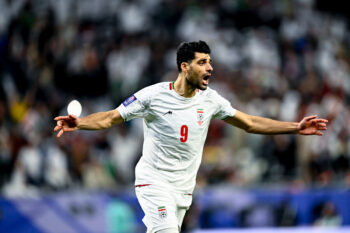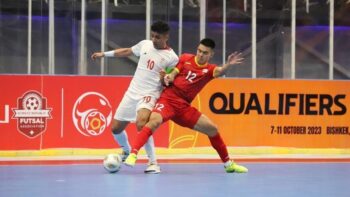AFC: Great grounds of Asia: Azadi stadium [VIDEO]

AFC – KUALA LUMPUR, With the Islamic Republic of Iran’s iconic Azadi Stadium set to host its first match of the 2017 AFC Champions League on Matchday Three when Esteghlal welcome Uzbekistan’s Lokomotiv, the-AFC.com kicks-off our series of profiles of some of the great ground of Asia. Starting with the stadium that currently owns the record attendance of an AFC Champions League game – the Azadi Stadium.
Overview
Built as the centre-piece of the hosting of the 1974 Asian Games, Azadi Stadium in Tehran is the home venue for the Iran national team as well as domestic heavyweights Persepolis and Esteghlal and is the largest football venue in the Middle East. The bowl-shaped structure, which helps create a vibrant and often intimidating atmosphere, sits within the Azadi Sports Complex, which also contains an aquatics centre and several other sporting venues.
History
Opened in 1971, the record attendance was set in September 1997 as a crowd of 120,000 attended the 1998 FIFA World Cup qualifier between Iran and Saudi Arabia, which ended in a 1-1 draw. In April 2015, the meeting between Iran’s Persepolis and Saudi Arabia’s Al Nassr attracted an AFC Champions League record crowd of 100,000 – beating the previous best set at the same venue as Persepolis entertained Qatar’s Al Gharafa three years earlier. The stadium also matched those numbers in the two subsequent ties hosted by Persepolis against Uzbek side Bunyodkor and Al Hilal of Saudi Arabia.
The Azadi Stadium has also hosted some of Asian football’s most prestigious matches, including the final of the 1976 AFC Asian Cup, when Ali Parvin scored the only goal of the game to give hosts Iran victory over Kuwait. And in 1999 and 2002, the stadium played host to the final of the Asian Club Championship.
A Match to Remember
In terms of sheer numbers, though, it is the surely the 1998 FIFA World Cup qualification AFC–OFC play-off first leg between Iran and Australia that lives longest in the memory with an unofficial crowd of 128,000.
An opening goal from Harry Kewell on 19 minutes had silenced the cacophonous home crowd but Khodadad Azizi re-energized the Iran support with an equaliser six minutes before half-time. But a magnificent goalkeeping display from Mark Bosnich kept the scoreline at 1-1 at full-time, although it would be Iran who ultimately progressed to the 1998 FIFA World Cup after their 2-2 draw in the second leg in Melbourne a week later.




